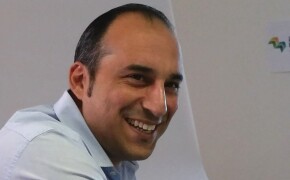Telemedicine infrastructure to support the chronic patients who live at their home with ventilator support.
Patients with chronic deceases and especially those with the need of mechanical ventilation need continuous monitoring and treatment by multidisciplinary healthcare professionals. To achieve that the patient must either be hospitalized or admitted to a healthcare facility or visited at home by a multidisciplinary healthcare professional team. Both options have several cons such us: High cost, patient isolation from family, psychological impact to the patient and limited monitoring. The project was funded under the INTERREG III A, the Cross-Border Cooperation Program "Greece-Cyprus" and lasted 24 months (2007-2008). Infrastructure was designed to give potential to the staff of Intensive Care Unit of Nicosia General Hospital to monitor the vital parameters of patients who were at their home through integrated broadband Satellite and Land (wired) Networks.
Patients with chronic deceases rely on a ventilator, which provides them mechanical breathing support (one of the fundamental biological processes) and functions that are standard in other telemedicine infrastructures. The technical infrastructure was designed and was implemented in such a way that does not interfere with daily activities of these patients. Moreover, it ensured the correct use of infrastructure by the patient's attendant and/or his relatives.
Stakeholders: Intensive Care Unit of Nicosia General Hospital
Beneficiaries: Chronic decease patients with mechanical ventilation at home
Resources needed
Overall budget of the project: 349.281,00 €
Budget lines of the project including their % share from total budget:
Staff Cost - 15%
Administration - 5%
Traveling - 12%
Equipment - 40% (€140.000)
External Expertise - 28%
Evidence of success
The service is functional since 2009. 18 patients at home with mechanical ventilation are continuously monitored and supported. Nicosia’s General Hospital has established a team of multidisciplinary healthcare professionals to support the service. The new technology has officially been adopted by the Nicosia General Hospital and is still being offered as a solution within the general health services provided by the organisation.
Difficulties encountered
- Maintenance cost.
- Initial health-care professional’s phobia of technology.
- Communication overheads are very high and costly in human and monetary terms.
- Difficulty of coordination.
Potential for learning or transfer
Easily transferable for rehabilitation, monitoring and training required for other (chronic) health problems and diseases. It utilizes mature and secure networking technologies to transfer video, sound and patient data in real time. Medical device communication is supported over secure communication channels. No specific conditions are required. For resilient networks a satellite high bandwidth subscription is required.
A specific Call for proposals targeting Social e-services provision/innovation could easily host such a project at any member state’s national or regional level.
Two basic conditions which the leading recipient from the region needs to have are a Dedicated Team of Health Professionals and a strong IT team.
Key potential threats for the GP project transfer:
- Patient familiarisation with technology
- Personnel training
- Trust issues of patients and personnel in IT
- Commitment of Policy Makers
Operational and maintenance yearly cost: €27.000
Please login to see the expert opinion of this good practice.
Tags: Market, SME, Learning, Health, Industry, ICT, Housing, Services, Mobility, Space, Consultancy, Support








